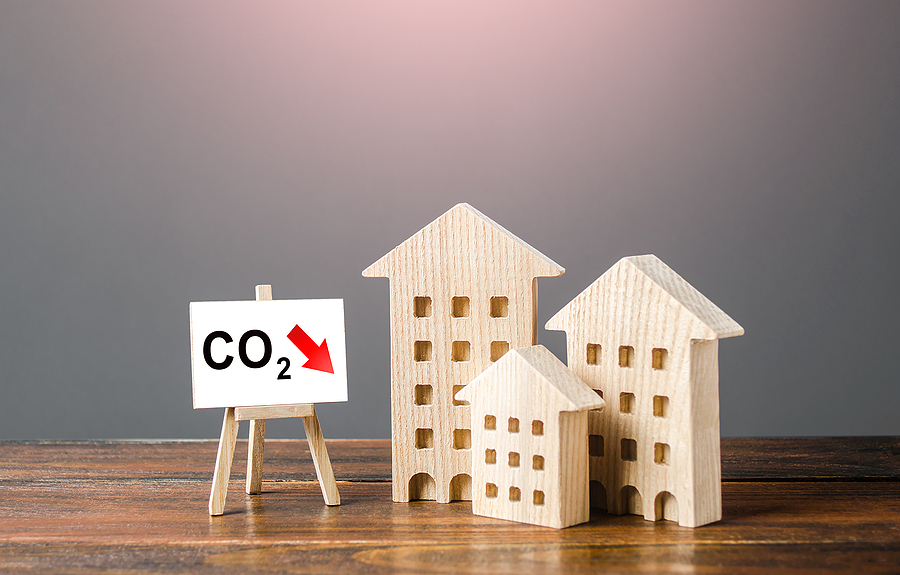DOB Releases New Rules for LL 97 Implementation
By Jaime Pabon
In December 2023, the New York City Department of Buildings (DOB) published the final version of its second batch of rules for implementing Local Law 97 of 2019, which establishes aggressive benchmarks to reduce the greenhouse gas (GHG) emissions of New York City buildings. The latest DOB release included the following:
- A new credit for beneficial electrification
- Definition of “good faith” criteria for determining mitigated penalties
- Guidance for compliance with Local Law 88 lighting and submetering requirements
In addition, the DOB also published a new preliminary LL 97 Covered Buildings List and a detailed Article 321 Filing Guide for buildings that must meet the law’s prescriptive path.
Beneficial Electrification Credit
The new rules define “beneficial electrification” as “the installation and use of energy efficient electric-based heating, cooling and domestic hot water systems to displace the use of fossil fuel sources (e.g., fuel oil, natural gas, district steam) and/or less efficient electric-based heating systems.” The revised rules establish minimum efficiency thresholds as determined by reference test procedures specific to each equipment type.
These new credits suggest that the city is taking a balanced approach that combines incentives and penalties to encourage owners to invest in more sustainable building systems. We’ve already seen overall progress as buildings throughout New York are taking steps to reduce GHG emissions, including electrification of heating systems, solar panel installation, and improved building envelope performance. Hopefully, these credits will help offset the necessary costs of efficiency upgrades.
‘Good Faith’ Criteria
Local Law 97 requires owners of covered buildings (25,000 gross square feet and larger) to report annual GHG emissions for the preceding calendar year, beginning on May 1, 2025. Covered buildings that exceed annual emissions limits may be subject to civil penalties. The provision concerning “good faith efforts” recognizes the significant investments required for compliance, as well as such factors as the 2020 pandemic and the period of implementation activity undertaken at the DOB.
The new rule defines “good faith efforts” for the 2024-2029 compliance period. Owners of properties that do not comply with the prevailing emissions limit must demonstrate that they are taking steps toward compliance to qualify for mitigated penalties. Among the requirements for “good faith efforts” are the following:
- Submission of annual building emissions reports and compliance with and granted DOB adjustments
- Compliance with LL 84 of 2009, as amended (Energy Benchmarking)
- Compliance with LL 88 of 2009, as amended (Lighting Upgrades and Sub-meter Installation)
In general, owners must demonstrate that work is underway to bring the property into compliance, such as having a fully approved application and issued permit for the work. Building owners that have not yet completed the work required to meet emissions limits may submit a decarbonization plan by May 1, 2025, provided they meet additional eligibility requirements. In addition to provide a mechanism that allows noncompliant owners to qualify for a mitigated penalty in the 2024-2029 compliance period, but it may also act as a roadmap outlining steps for compliant properties to take toward compliance with 2030-2034 limits.
The overall march toward compliance with initial emissions limits has been a mixed bag. The city reports that nearly half of the buildings projected in 2019 to be non-compliant with 2024 limits have since reduced their emissions below the new thresholds. At the same time, the buildings that have not yet achieved the necessary reductions vary greatly in terms of work still required. Those properties that have been consistent with their benchmarking efforts are best positioned to understand where they fall in terms of compliance with the city’s emission reduction goals.
Local Law 88 Updates
LL 88 of 2009 requires buildings larger than 50,000 square feet to upgrade lighting systems and to install sub-meters in tenant spaces by January 1, 2025. Subsequent amendment extended the requirement to include all buildings of at least 25,000 square feet. The most recent rules provide detailed information on how to report compliance with LL 88, as well as penalties for failure to report and noncompliance.
Compliance reports are due by May 1, 2025, and must include an attestation by a registered design professional, licensed master electrician, or a licensed special electrician. Failure to file either compliance report (lighting upgrades or sub-meter installation) will incur a penalty of $1,500, assessed annually until the compliance report is filed. Failure to install a sub-meter in a covered tenant space will subject the owner to a $500 penalty for each noncompliant tenant space, again assessed annually.
Preparing for LL 97 Compliance
LL 97 compliance is here. The first reports, due next May, will include building emissions since January 1 of this year. The penalty mitigation should offer much-needed relief for owners that still have to ramp up their upgrades, but qualifying for such relief requires owners to show progress toward compliance well in advance of the reporting deadlines. The stricter 2030-2034 limits will likely also have more rigorous standards to qualify for future penalty mitigation based on “good faith efforts.”
As with other major industry changes, compliance with LL 97 will require a coordinated effort from building owners, contractors, technical specialists, and consultants. Those buildings that do not yet meet the 2024 emissions limits will likely need to take aggressive action to reduce the fines and penalties associated with noncompliance. The city is adamant about reducing GHG emissions and wants to bring a majority of buildings—if not all—into compliance, and financial penalties are a proven method for enforcing change.
For help with LL 97 compliance strategy or implementation, contact Metropolis Group at 212.233.6344.


